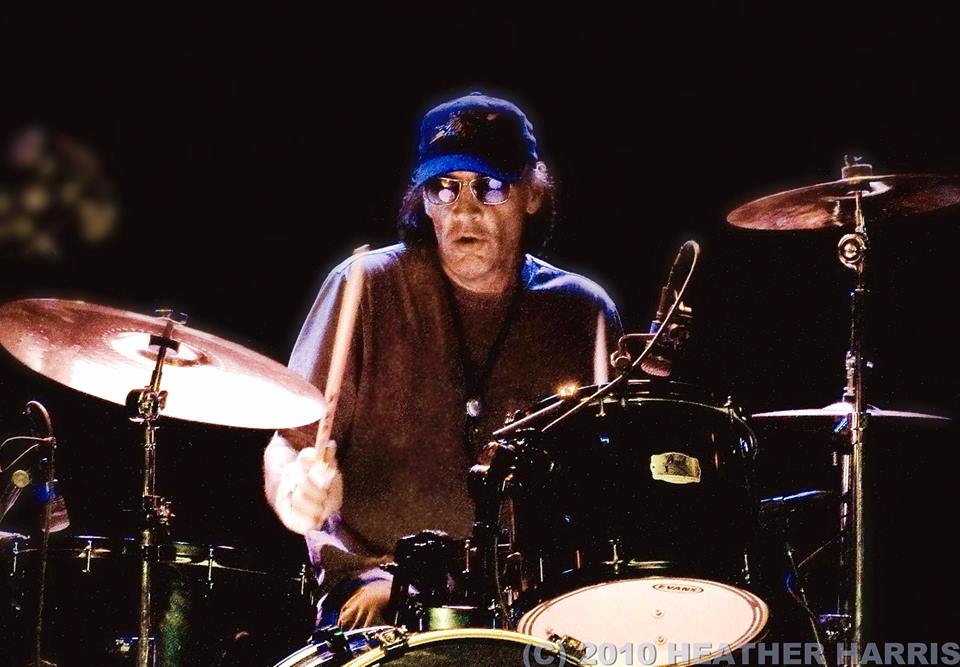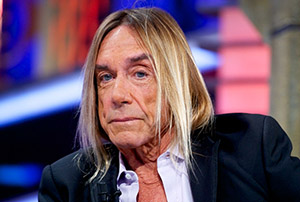Another great rocker has left us. Drummer Scott Asheton, a founding member of The Stooges, passed away on March 15th.
Iggy Pop shared the news on his Facebook page:
My dear friend Scott Asheton passed away last night.
Scott was a great artist, I have never heard anyone play the drums with more meaning than Scott Asheton. He was like my brother. He and Ron have left a huge legacy to the world. The Asheton’s have always been and continue to be a second family to me.
My thoughts are with his sister Kathy, his wife Liz and his daughter Leanna, who was the light of his life.
The Stooges was one of the embryonic bands that provided a primordial squirt into the conceptual DNA of the music we now like to call punk rock.
According to legend, James Osterberg, a drummer with an Ann Arbor band, The Iguanas, wound up with the “Iggy” nickname” when he joined another band known as The Prime Movers. Inspired by the purity of blues music, and drummer Sam Lay in particular, Mr. Osterberg decided he wanted to create a new variation on blues music, enlisting the Asheton brothers – Scott on drums and Ron on guitar, along with their friend Dave Alexander on bass to a create a band that would be known as the Psychedelic Stooges. The three members gave Osterberg a nickname of “Pop,” in reference to a local character, which eventually merged with the other nickname to become simply “Iggy Pop.”
The band debuted at a Halloween house concert in 1967. Sometime in 1968, they changed their name to “The Stooges,” and were signed to Elektra Records, along with fellow Detroit musicians MC5. Their first album, produced by ex-Velvet Underground member John Cale, did not sell well, and was generally ignored by both the public and the critics.
For the second effort, ex-Kingsmen keyboardist, Elektra A&R man Don Gallucci was hired to produce the 1970 album titled “Fun House.” Much like the first album, critical reviews weren’t very favorable. Melody Maker magazine called it the “worst album of the year” and described it as “a muddy load of sluggish, unimaginative rubbish heavily disguised by electricity and called American rock.”
By some odd bit of irony, 30 years later, in 2003, Rolling Stone magazine ranked “Fun House” number 191 on their list of the 500 greatest albums of all time and Melody Maker now stated that this album is “no contest, the greatest rock n’ roll album of all time”.
Funny how opinions evolve over time, huh?
Anyways, sometime in 1970, the Stooges expanded the lineup with another guitar player named James Williamson, did more outrageous shows, wound up with some drug-personal complications, got dropped from Elektra, then broke up in 1971. Within a year later, the band reformed as Iggy & the Stooges, recorded their third album – “Raw Power (ranked # 125 on Rolling Stone’s list of the 500 greatest albums of all time),” and then eventually broke up again in 1974.
The final performance of this incarnation of the Stooges took place on February 9, 1974, recorded and released as “Metallic K.O.”- a live album that featured the first explicitly raw rendition of LOUIE LOUIE, featuring the naughty lyrics hinted by interpretations of the 1963 Kingsmen recording.
While The Stooges didn’t reunite until 2003, drummer Scott Asheton was one of the few members of the Stooges to work with Iggy during the long break, joining Mr. Pop for a 1978 European tour.
The Stooges reunion came about as a result of a variety of different elements coming together – renewed appreciation of the band from a wider, younger audience, the expanded reissues of both “Fun House” and “Raw Power,” and some energetic new recording sessions with the Asheton brothers. With Mike Watt (of Minutemen & Firehouse) filling in for the late Dave Alexander, the Stooges reunited for a series of live shows in 2003 that turned into a full-fledged reunion.
James Williamson was invited to join in the band reunion, but decided to remain focused on his career as an executive at Sony Electronics. Six years later in 2009, Ron Asheton died of a hard attack, James Williamson retired from Sony, and wound up playing with the Stooges again.
Scott suffered a serious medical emergency after a Stooges show in France in 2011, returned to his Michigan home to recover, and from what I understod, he was never able to perform with The Stooges again.
(UPDATE: Scott did perform with the Stooges again for Austin City Limits show in October 2012 link)
The photograph shared of Scott is courtesy of her friend Heather Harris, who granted permission to share this image. You can view her special tribute to Scott at:
http://fastfilm1.blogspot.com/2014/03/scott-rock-action-asheton-rest-in-peace.html
More details and reference at:
Iggy & the Stooges Facebook page
* * * *
UPDATE: Rolling Stone shared a letter from Iggy Pop regarding his old friend and bandmate
Iggy Pop Remembers Scott Asheton: ‘He Played With A Boxer’s Authority’
I first met Scott Asheton when I was working at Discount Records in Ann Arbor to augment my drumming. He used to stand with [future Stooges bassist] Dave Alexander at the corner of State Street and Liberty, which is grand central for the University of Michigan campus. Scott impressed me immediately by his obvious physical gift. He remembered this better than I do, but he would bug me to teach him how to play drums.
Things didn’t get very far until I realized it would better for me to work with a good drummer rather than continuing as a drummer myself in blues bands. Also, you could just look at this guy and tell that he had it. He was just a likable and attractive person, and he picked the drums right up. I gave him my kit and showed him a couple of things. I’d be like, “Here’s how you do a Stax Volt beat. Here’s a Bo Diddley beat. This is a Middle Eastern one.” He got it very quickly. I didn’t have to show him much.
Scott played drums with a boxer’s authority. When he wanted to, he had a heavy hand on the drums. He hit the drum very hard, but there were never a lot of elbows flying. He wasn’t showy. He didn’t have to make a physical demonstration to get the job done. When he played with you, it was always swinging. He brought a swinging truth to the music he played and extreme musical honesty.

